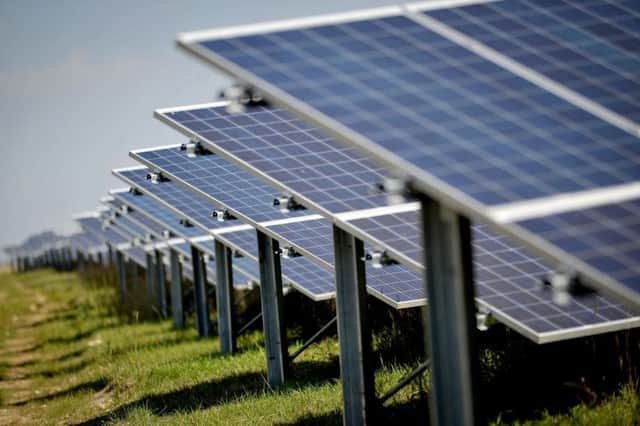Solar power to ensure clean water for India


Scientists at the University of Edinburgh say they are developing low-cost, low-energy technology to decontaminate sewage water in hard-to-reach villages.
The initiative could provide safer drinking water and help to reduce the spread of disease, experts hope.
Advertisement
Hide AdAdvertisement
Hide AdWater contamination is a major problem in the developing world.
Around 77 million people in India do not have access to safe drinking water – more than any other country in the world. To make dirty water safe to drink, visible traces of waste are removed with filters and then any remaining organic matter and bacteria is broken down.
Chemists and engineers on the team are adapting their existing technologies to power this second stage in the decontamination process.
Their “simple” system uses sunlight to generate high-energy particles inside solar-powered materials, which activate oxygen in the water to “incinerate” harmful pollutants and bacteria.
Advertisement
Hide AdAdvertisement
Hide AdDr Aruna Ivaturi, of the university’s School of Chemistry, said: “We are aiming to provide people in rural India with a simple off-grid water decontamination system.
“This could be achieved by simply fitting our modified solar-activated materials to containers of contaminated water positioned in direct sunlight.”
The team hopes to incorporate technologies developed during the five-month pilot project into larger-scale initiatives.
The project is being carried out in partnership with the Indian Institute of Science Education and Research in Pune.
Advertisement
Hide AdAdvertisement
Hide AdProject leader Professor Neil Robertson, also of Edinburgh University’s School of Chemistry, said: “Working closely with our Indian partners, we aim to harness the sun’s energy to tackle a huge problem that affects many people around the world.”
Although India has made improvements over the past decades to drinking water systems, its large population has stressed planned water resources. India’s water crisis is often attributed to lack of government planning, increased corporate privatisation, industrial and human waste. The World Bank estimates 21 per cent of communicable diseases in India are water related.